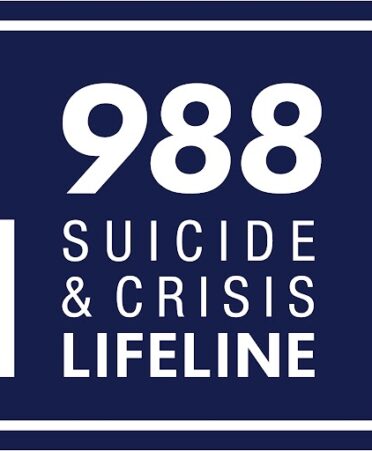(WACO, Texas) – Texas State Technical College’s counselors want to know what is on students’ minds, especially as they adjust to a new academic year.
“They are also having to ‘adult’ and think about bills, school, job and families,” said Amy Buchanan, a counselor for TSTC’s West Texas campuses. “Life does not stop because you enroll in college. The stress and anxiety can really affect them in a negative way. I think people start to feel hopeless.”
September is National Suicide Prevention Month. Suicide is the second-leading cause of death for people ages 10-34 in Texas, according to the American Foundation for Suicide Prevention in citing the most recent data from the Centers for Disease Control and Prevention released in 2020. For people ages 35 to 44, suicide is the fifth-leading cause of death in the state.
Shanta Williams, a counselor for TSTC’s North Texas and Waco campuses, said risk factors for the traditional college-going age range can include conflict regarding sexual identity, child abuse, family history, medical conditions, sexual abuse, substance abuse and trauma. She said a lot of these issues may not have been addressed before students enrolled at TSTC.
“It has always been the risk factors that influence and impact the students’ mental health that cause the suicide ideation,” Williams said.
Williams said social media can play a role in suicidal thoughts. She said the pictures and videos that students see can lead to body image questions and other societal pressures.
“I would say limit social media and news outlets as well because we have found a lot of students during the COVID-19 pandemic were looking at the numbers, and the death toll would rise and it would cause anxiety, fear and uncertainty,” Williams said.
Buchanan said she can see why some students hesitate to talk to someone about what they are feeling and thinking.
“They feel they are a burden to their families or friends, and they don’t want to unload more stuff on those people in their lives,” she said. “That is what counseling is for. I have seen the students that have sat across from me that don’t know what to do.”
Justice Johnson, a counselor at TSTCs Fort Bend County campus, said it would be helpful for students to look back at their family history for patterns of mental health issues.
“If their parents and their parents before them did not have the support system and take advantage of counseling, they have a hard time offering and providing their children those same resources,” she said. ‘It’s hard for students and younger children to go to their parents and say they are feeling suicidal and depressed.”
Johnson said she wants to discuss previous mental health findings with students.
“I want them to understand what it is and know it does not define their life, and they can learn to cope with it and live with it,” she said.
Buchanan said she does not use clinical or therapy-based language when meeting students for the first time in counseling sessions. She said she wants to spend time getting to know the students and slowly build their trust.
“I think it is just being consistent and truthful and letting them know we are not going to spread their business all around the TSTC community,” she said. “It is about being real.”
TSTC’s counselors meet students in person, by phone or online via video. Students are not limited by the number of counseling sessions, which are provided free of charge.
“I think it is critical and imperative that our students know what we do,” Johnson said. “I am not just here for a crisis situation. I want students to come and find me before a crisis so we can prevent that.”
Johnson said her office is a safe space for students to cry, laugh, yell, or let out whatever emotion they want.
“I think that is important working at a technical college because a majority of our students are males,” she said. “In society, I believe we do not have a safe place for them to talk about their emotions, feel their emotions, cope with their emotions, even just label their emotions.”
All of TSTC’s counselors are licensed professional counselors or master social workers.
“We have our code of ethics we have to follow, and we go over that in the first session with the students we meet with,” said Buchanan. “We tell them there are certain circumstances where we will have to tell someone to ensure safety for us and them.”
If you or someone you know needs help, call or text the Suicide and Crisis Lifeline at 988, or for Spanish call 1-888-628-9454. Callers will be connected to a certified crisis center near where the call is being placed.
TSTC students who are interested in scheduling free counseling can email tstcounseling@tstc.edu.
For more information about TSTC, go to tstc.edu.
